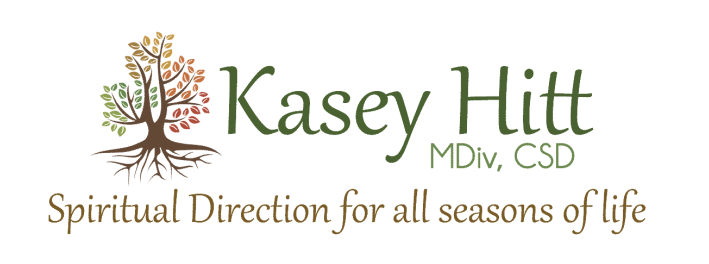|
Advent is a time of gestation. Much like the discomfort and anticipation of pregnancy, we wait on the arrival of what is deeply hoped for and anticipated.
A few weeks ago I was in a sensory-deprivation tank floating on 1500 pounds of salt. It's supposed to be (and usually is) relaxing but that day I kept squirming around...like a baby in the womb. Last year I went to a Benedictine Sister for both Spiritual Direction and healing touch at a monastery where I would be facilitating a retreat the following day. During the time of laying on of hands, when she got to my abdomen she said, "We are in the womb of God who is birthing us. Birth pains are difficult, but we WILL be born." I teared up as I heard these words of deep hope, because I had been restless then, too. In liminal space, I felt the strain of being "betwixt and between," especially in relationship with my own religious institution where the leadership continued pulling back from engaging contemplative practice with each passing year. Knowing the transformative power and wholeness found in contemplation and action, I continued to hope. What this hope looked like in regard to my faith community, I found myself full of questions with no easy or sure answers. Her words of hope spoke to my soul but did not take away the struggle. Contrary to idealistic views of hope, theologian Jurgen Moltmann (known as the theologian of hope), writes in Experiences of God, "...whenever faith develops into hope it does not make people serene and placid; it makes them restless. It does not make them patient; it makes them impatient. Instead of being reconciled to existing reality they begin to suffer from it and to resist it." The Sister's words of hope gave me deep permission to accept the struggle and discomfort as part of the process of rebirth. When I realized that it was not wrong, but natural, to be squirming in the float tank, I found myself smiling with a newfound acceptance. Instead of trying to be still, I playfully allowed my arms and legs to stretch and move however they wanted. It felt freeing. If I could allow this restlessness in the float tank, how about other in places of my life? After all, Saint Paul reminded the people in Athens of the perennial truth of their own Greek poets when he quoted, "For in him we live and move and have our being." Sometimes we rest, sometimes we walk, sometimes we wriggle in the womb of God. _____________________
Comments are closed.
|
AuthorKasey is a scarf, ball and club juggling spiritual director just outside of Nashville, TN. Play helps her Type-A, Enneagram 1 personality relax, creating space for poetry and other words to emerge. She also likes playing with theological ideas like perichoresis, and all the ways we're invited into this Triune dance. Archives
January 2024
Categories
All
|
By clicking “Sign up for E-News” I consent to the collection and secure storage of this data as described in the Privacy Policy. The information provided on this form will be used to provide me with updates and marketing. I understand that I may modify or delete my data at any time.

 RSS Feed
RSS Feed

